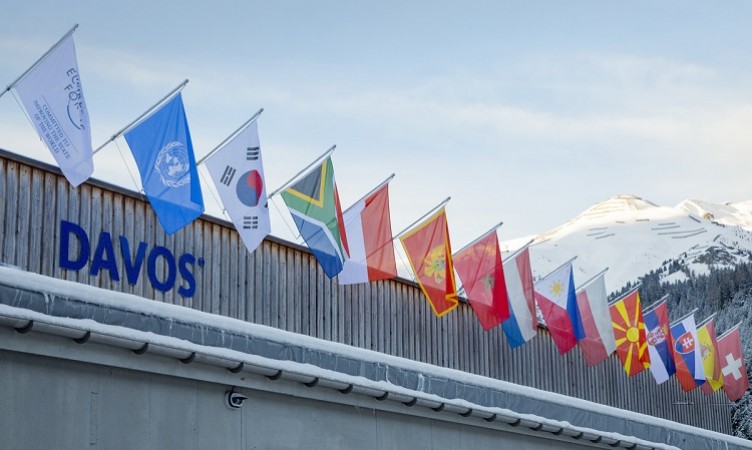
In a recent report, Oxfam disclosed that the collective fortune of the world's five wealthiest individuals soared from $405 billion in 2020 to a staggering $869 billion in 2021. The report underscores the escalating concentration of wealth and the growing influence wielded by the super-rich in shaping tax policies. Oxfam estimates that 148 major corporations raked in $1.8 trillion in profits, a 52% increase compared to the three-year average, allowing substantial payouts to shareholders. Additionally, the report highlights the adverse impact of inflation and stagnant wages, with nearly 800 million workers worldwide witnessing a decline in real wages.
The Global Elite vs the Masses
This report, coinciding with a gathering of the global elite in the Swiss Alpine resort, exposes a troubling trend of rising wealth inequality amid widespread economic challenges, including the aftermath of the Covid pandemic. Oxfam's annual inequality report points out that billionaires collectively added $3.3 billion to their wealth since 2020.
Oxfam's criticism goes beyond mere wealth accumulation, accusing corporations of exacerbating inequality through worker exploitation, tax evasion, and the privatization of state functions. The charity identifies a sustained and effective campaign against taxation, resulting in a significant reduction in corporate taxes in OECD countries from 48% in 1980 to just 23.1% in 2022.
Power and Privilege -The findings from Oxfam indicate a worrisome concentration of power, with corporations influencing various aspects, including wages, food prices, and access to medicines. The report states, "Around the world, members of the private sector have relentlessly pushed for lower rates, more loopholes, less transparency, and other measures aimed at enabling companies to contribute as little as possible to public coffers."
Proposed Solutions -To address this imbalance, Oxfam proposes the implementation of a wealth tax on millionaires and billionaires, potentially generating $1.8 trillion annually. The charity also calls for capping CEO pay and dismantling private monopolies.
Five Richest Men's Fortunes Double While Five Billion People Face Increased Poverty, Says Oxfam
Oxfam's latest report reveals that the combined wealth of the world's five richest men has more than doubled to $869 billion since 2020, coinciding with a period where five billion people have experienced heightened poverty. The report, released ahead of the World Economic Forum meeting in Davos, emphasizes that a billionaire now holds a significant role in seven out of ten of the world's largest companies.
Oxfam urges governments to curb corporate power by breaking up monopolies, imposing taxes on excess profits and wealth, and exploring alternatives to shareholder control, such as various forms of employee ownership.
The report estimates that 148 top corporations recorded a 52% increase in profits, totaling $1.8 trillion, enabling substantial payouts to shareholders. This occurred as millions of workers faced a cost-of-living crisis due to inflation leading to real wage cuts.
Amitabh Behar, Oxfam International's interim Executive Director, states, "This inequality is no accident; the billionaire class is ensuring corporations deliver more wealth to them at the expense of everyone else."
The Davos events, initially aimed at promoting "stakeholder capitalism," are now being questioned as Oxfam's report reveals a stark contrast between corporate aspirations and the reality of growing inequality. Max Lawson, Head of Inequality Policy at Oxfam, asserts, "What we know for sure is that today's extreme system of shareholder capitalism, which puts ever-increasing returns to rich shareholders above all other objectives, is driving inequality."
The report highlights a surge in the wealth of the top five billionaires, driven by gains in the assets of individuals such as Elon Musk, Bernard Arnault, Jeff Bezos, Larry Ellison, and Warren Buffett. Simultaneously, nearly 800 million workers globally saw their wages fail to keep up with inflation over the past two years, resulting in an average equivalent of 25 days of lost annual income per worker, according to Oxfam's analysis.
Oxfam's study also reveals that only 0.4% of the world's 1,600 largest corporations have publicly committed to paying workers a living wage and supporting a living wage in their value chains.